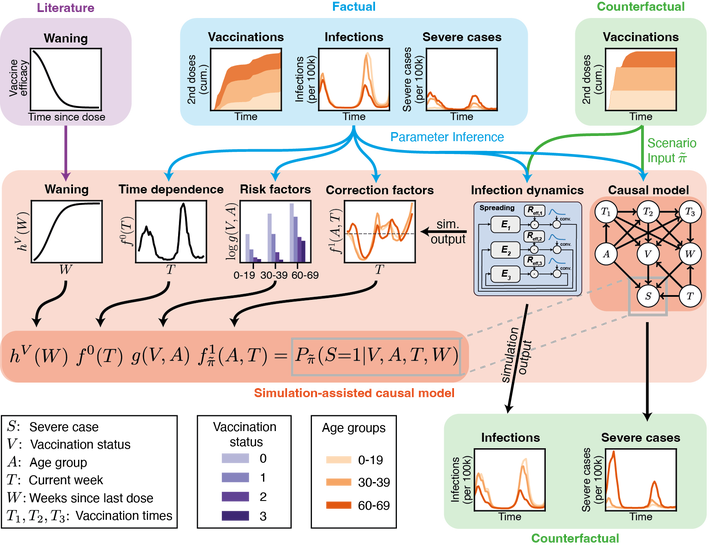Evaluating vaccine allocation strategies using simulation-assisted causal modeling

Abstract
We develop a model to retrospectively evaluate age-dependent counterfactual vaccine allocation strategies against the coronavirus disease 2019 (COVID-19) pandemic. To estimate the effect of allocation on the expected severe-case incidence, we employ a simulation-assisted causal modeling approach that combines a compartmental infection-dynamics simulation, a coarse-grained causal model, and literature estimates for immunity waning. We compare Israel’s strategy, implemented in 2021, with counterfactual strategies such as no prioritization, prioritization of younger age groups, or a strict risk-ranked approach; we find that Israel’s implemented strategy was indeed highly effective. We also study the impact of increasing vaccine uptake for given age groups. Because of its modular structure, our model can easily be adapted to study future pandemics. We demonstrate this by simulating a pandemic with characteristics of the Spanish flu. Our approach helps evaluate vaccination strategies under the complex interplay of core epidemic factors, including age-dependent risk profiles, immunity waning, vaccine availability, and spreading rates.